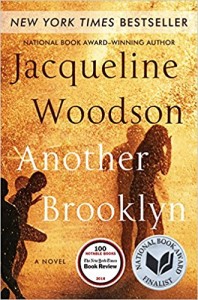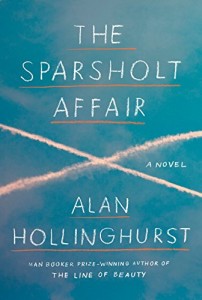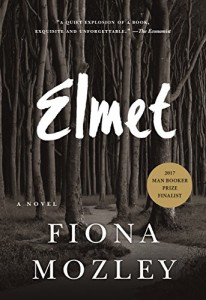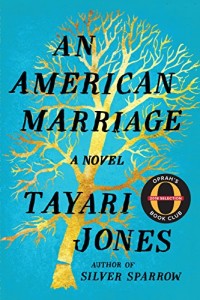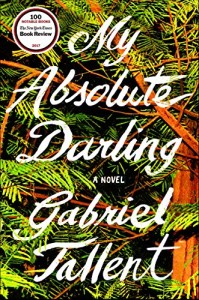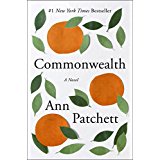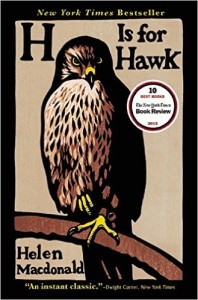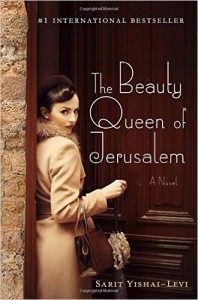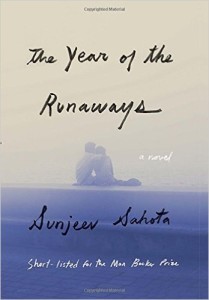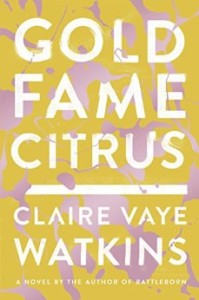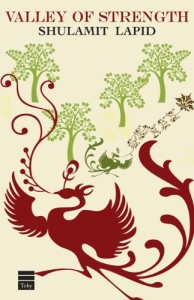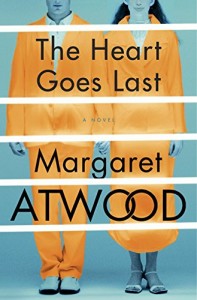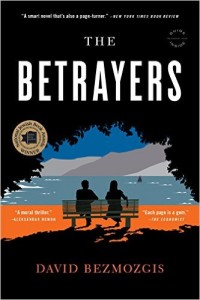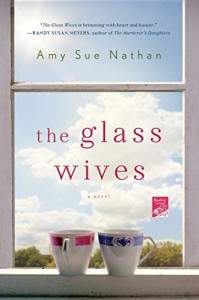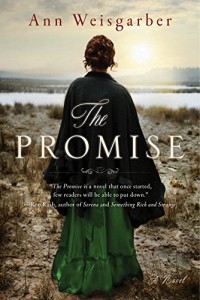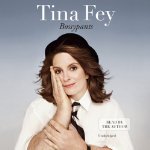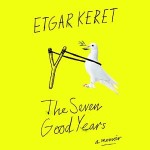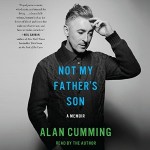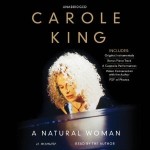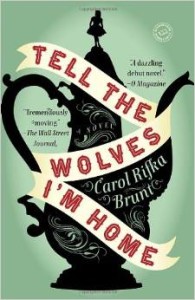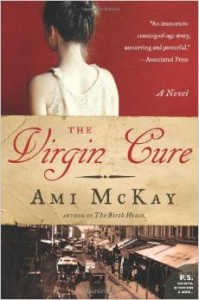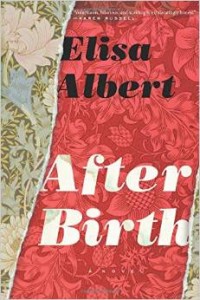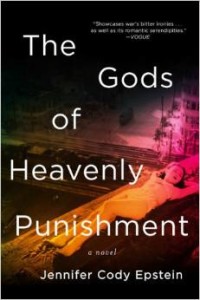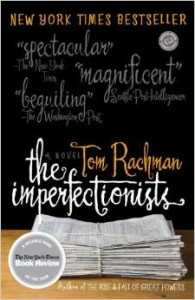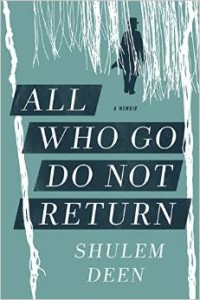Welcome to His Brother’s Keeper, a fictional mystery series set in 2000, in New York. I’ve decided to periodically lend my blog to a friend, Eva Hirschel. Eva doesn’t have a social media presence but she does have a mystery that she wanted to publish serially on-line, so I’m giving her a hand. (If you’re just tuning in now, I suggest that you start at the beginning). Here is Part I, Chapter 5. Enjoy!
Chapter Five
 I stretched and rolled over. Another day, another dollar, or at least a good attempt. But not yet, not just yet. I couldn’t face getting up just yet. I pulled the blanket over my face. A few more minutes…
I stretched and rolled over. Another day, another dollar, or at least a good attempt. But not yet, not just yet. I couldn’t face getting up just yet. I pulled the blanket over my face. A few more minutes…
A large, heavy moving object landed on my stomach. “Morning, Mommy,” declared Hannah. “Time to get up!” She peeled the blanket back from my face and kissed my cheeks, ears, and nose. “Up, up, up! Mommy, Mommy, up, it’s morning.”
“So it is, so it is Hannah-girl. I’m getting up. Just give me a minute. I have to tickle someone first.” My hand shot out from the blanket and reached for her stomach. She jumped off me, onto Simon. He groaned.
“Is it Monday?” he asked sleepily.
“Yup, Daddy, it’s time to get up. Can I have waffles for breakfast?”
I sat up and brushed my hair off my face. “Okay. Hannah, go get dressed. I’ll be downstairs in a few minutes. Come Simon, let’s get going.” I gave him a little shake. Mornings were always a negotiation between us, who would go downstairs first and serve breakfast, and who would get to take a shower before coming down. I envied the families I saw on television, where the mother always managed to be neatly dressed and ready before everyone else, standing happily wide awake in her spic and span kitchen, serving breakfast, making everyone lunch, and then kissing each family member good-bye as they left for work or boarded the school bus. Never mind that she then probably went upstairs and downed Prozac. Never mind that those mothers didn’t seem to have lives or careers of their own. Never mind that in Brooklyn our kids didn’t go to school in school buses. Never mind all of that—I never felt that I measured up to that paradigm of motherhood perfection.
Simon moaned again. “Got that meeting. Can’t be late,” he croaked in a sleep-thickened voice. Simon was not a morning person.
I sighed. “Okay. Jump into the shower. I’ll go make breakfast.” I was wearing an oversize t-shirt, but that wasn’t going to make it. I got out of the warm bed, pulled on the nearest pair of sweatpants, and pushed my feet into clogs. “Let’s go, bugaboo,” I said to Hannah. “Come on Simon, get yourself up. Tea is as good as brewing already.”
I headed down to the kitchen. Caleb was apparently still asleep, but I knew he would make his own way down as soon as he woke up. The sun was streaming through the kitchen windows, making the granite counters glow. The kitchen looked warm and welcoming and cozy, despite the detritus of last night’s dinner that hadn’t gotten completely cleaned up. I popped some waffles into the toaster and put up the kettle for Simon’s tea. I prepared a bowl of grapes and cantaloupe for the kids, and for myself, my morning favorite, plain nonfat yogurt with granola, raisins and half a banana.
Hannah rushed in and jumped onto her stool at the counter. Today must be a special day—she wore orange, red, and yellow striped tights, a green velour dress, and her pink hi-top sneakers. Around her neck she wore two strands of shiny plastic beads, one purple, one gold, that my mother-in-law had sent her from a New Year’s Eve gala she had attended last year. Her curls were going in every possible direction. She was an original, my daughter.
“So what’s the big event?” I asked, taking the waffles out of the toaster.
“Today is club day,” she replied. “Zoё and I have a club, and today we’re inviting other people to join. So we decided to dress up to show how nice it is to be in our club. You know, so people will understand about our club.”
“What kind of club is this?” I asked.
“You know, a club people join. That kind. Then we’re all in a club together.”
“Hmm.” I gave Hannah her waffle and a glass of milk, and took a seat across from her. “But you’re not going to exclude anyone, right? You know, that could really hurt someone’s feelings if you didn’t let them join the club.”
Hannah sighed, deeply injured by my complete lack of faith in her. “Oh Mom, of course I know that. Anyone can join our club. Even Bad Jason. But he’ll say it’s dumb and he won’t want to join.”
We ate in companionable silence for a few minutes, concentrating on our breakfast. The day ahead of me was going to require some careful juggling. Hannah needed to be picked up from preschool, and Caleb had his Mommy-and-Me music class this morning at the synagogue. Hannah was going to a birthday party in the afternoon, and I had to stop and buy a birthday present. There were very few fruits and vegetables left in the fridge, so I had to go to the Coop at some point. I had hoped to be able to take Caleb to the park in the afternoon after his nap, but I wanted to find time to get some work done. There were phone calls to make, e-mail to send, and websites to visit.
Simon came downstairs, showered, shaved, dressed and ready to meet the world. He carried Caleb, still half asleep, in one arm and his briefcase in his other hand. “Look who I found!” he announced.
In the short time since I’d left Simon upstairs, he had gotten himself ready to face the world. He was a good-looking guy, with close-cropped dark hair that emphasized his big, brown eyes, thick eyebrows, dramatic cheekbones, and mouth just slightly too big for his long face. He was starting to lose the battle against a receding hairline, but as I often told him, it just made him look more handsome and dignified. Tall and on the verge of being gangly, he still had the same build as when we first met, and it made him look younger and more athletic than he really was.
Noticing me looking at him, he smiled. “My tie okay?”
I nodded. “Just fine. Good choice with that shirt.”
Caleb suddenly gained full consciousness and bounded out of Simon’s arms. “Mommy!” he yelled, jumping into my lap and just as quickly abandoning me for a stool.
And so begins another day. For several minutes there was peace and calm as everyone ate their breakfast and continued to emerge into full wakefulness. The morning sunlight filled the kitchen with a warm, golden glow. Now that I was wide awake, I was excited to start the new week. Yesterday had been a mellow day. We had guiltily popped in a video for the kids when they woke up at seven, and had gone back to bed for an extra hour and a half. We had gone out for brunch and then taken the kids to see a puppet show. We hadn’t done any errands, and although I was going to be paying the price for that all week long, it had made for a low-stress day. I hadn’t even gone down to my office to work. It felt great to be a family. I loved them all so much that when I really stopped to think about it, it scared me how much. On Shabbat Leah had given a sermon about noticing everyday miracles, and it was at moments like this that I could understand what she was talking about. This was a miraculous moment, this calm, happy breakfast we shared as a family on a beautiful fall morning. My children were miracles, and so was my marriage. I couldn’t imagine what it would have felt like to have lived through the times I was now researching, when families were uprooted and torn apart, when people were tortured and killed simply because they were Jews. What would I do if God forbid, as my grandmother would say, I ever lived through times like those? Would I insist that we stay together as a family, no matter what, or would I find a way to save my children, even if it meant sending them away?
It was hard for me to imagine having the kind of faith in God that the Halizcher rebbe seemed to have had, and I wondered if he later regretted his decision. My family was already here when World War II broke out. But at about age nine or ten, I went through a period when I read everything I could get my hands on about the Holocaust. Having been safely born in Brooklyn, I was fascinated by what the Jews had gone through in Europe. I devoured books like When Hitler Stole Pink Blanket, The Diary of Anne Frank, and The Upstairs Room until I started having so many nightmares that my mother decided I should take a break and read Caddie Woodlawn and Little Women instead.
Simon’s hand on my shoulder brought me back to the present. “I have to get going,” he said. “You okay?”
“Yeah,” I answered, smiling at him. “I was just thinking that your tie is actually crooked, come to think of it.”
“Believe me, I know what you’re really thinking,” he answered, smiling back. “You think I don’t know, huh? You’ve got all the symptoms of being totally caught up in work. Just remember, it’s only work.”
I laughed. “And you’re one to talk.”
“Well, it takes one to know one. I’ll see you tonight, probably around seven. I’ll try not to be later than that. Can you pick up my drycleaning?”
“Okay,” I answered, making a mental note to add that to the day’s rounds.
“And remember to call the dentist to make an appointment for Hannah.”
“Okay.”
“And if you get a chance, I think we’re low on diapers.”
“Okay. I’ll do my best. I do have to get some work done today too.” As I spoke, I noticed that something in the room stank. I wrinkled my nose.
“Yeah, Caleb needs to be changed,” Simon said, and kissed me goodbye. He hugged the kids, grabbed his jacket and briefcase, and headed out. “Have a good day. Good luck with the research.” The door closed and he was gone, his tie still crooked.
I sighed again. One dirty diaper to change, dirty dishes to do, and I still had to take a shower, get dressed, and get Hannah to school. Just then Caleb lunged for a piece of cantaloupe and knocked over Hannah’s glass of milk. The milk ran across the counter, down Hannah’s dress, and onto the floor.
Hannah screamed. Caleb wailed.
I grabbed a towel and wiped up the milk while Hannah and Caleb threw accusations back and forth. With one hand, I extricated Caleb from his stool, despite his complaints that he hadn’t yet finished eating. With the other, I pulled Hannah out of her soaking wet dress. That I managed to get anything at all done, that I managed to have a functioning brain with which to think, that was the real miracle.
***
When I called Rabbi Springer’s office in the morning, I was lucky enough to actually reach him. When he heard what I wanted to talk to him about, he asked me to meet him for coffee at 3:30. As he was about to go out of town, it was now, or wait two weeks. Getting there meant re-adjusting my schedule, but thankfully Ronit was flexible.
I got out of the subway at Broadway Lafayette and walked up Broadway, observing the crowd. It was a beautiful afternoon, sunny and warm, and the street was full of people wearing black. There were black-clad NYU film students, artist-mothers in black leggings wearing black picking up children in black Gap jeans from school on their way home to their white lofts, and cigarette-smoking high school students in black Doc Marten’s, a group of high-fashion Italian tourists eating ice cream in expensive black designer-wear. Not a lot of business people walking around at this hour of the afternoon. I felt conspicuous in my purple sweater, but at least my pants were black.
I turned on to West Fourth Street, following Leah’s directions. Except for the blue flag proclaiming “Hebrew Union College-Jewish Institute of Religion” that fluttered in the entrance to the building, there was nothing conspicuous about the rabbinic seminary. The modern red-brick building looked like the NYU buildings surrounding it, another anonymous academic space. The only thing that gave some hint that something different went on here was the little bit of stained glass from the seminary’s chapel that jutted out of the corner of the building.
As I approached the building, I could see a small man with a full head of gray curls. That had to be Rabbi Springer. Rabbinic students were entering and leaving the building behind him, nodding reverentially as they passed. The students looked clean-cut and well-scrubbed. There was probably not a pierced nostril among them, another thing that would make them stand out among the NYU students in the neighboring buildings. It still made me laugh to think that Leah actually went to rabbinic school and became a rabbi. In fact, she’s a great rabbi. She liked to do things her own way, which had made me think that rabbinic school might not be for her. But she had sailed through it, winning prizes in Hebrew and Bible and Homiletics. For some reason that neither she nor I understood, it was only with men that her ability to succeed was severely challenged.
“Rabbi Springer,” I said, putting out my hand. “Abby Marcus.”
He was, as I’d already observed, a small man, but rather broad and muscular. Leah had told me that his other passion, next to Chasidism, was Karate. Seeing him, I could believe it. His clear eyes and ruddy cheeks radiated good health, his handshake was strong and firm, and his broad smile indicated a sincere eagerness to make my acquaintance. His gray curls bobbed up and down as he enthusiastically shook my hand. In the middle of the curls was a small, blue knit kippa with flowers and doves embroidered around the edges. It would have been hard for a casual observer to pigeonhole him but the jacket, with its elbow-patches, was a dead giveaway that he was an academic.
“Nice to meet you, Abby Marcus,” he said in reply, smiling. “Which will it be? Caffenation or a nice glass of wheat grass and beet juice? What’s your vice? Pleasure or health?”
I sensed that he would have preferred the wheat grass, but since he had offered a choice, I was going for the caffeine. We walked around the corner to the nearest Starbucks, where I ordered a double expresso. My intuition about the rabbi’s own preferences was confirmed when he ordered a cup of steamed soymilk. I didn’t actually know you could steam that stuff. I insisted on paying, since, after all, he was doing me a favor, and we sat down at a back corner table. I proceeded to tell him about my encounter with Sarah Gelberman and subsequent research into the Halizcher Chasidim.
“I like puzzles, and good stories, and it sounds like you may have both here,” he said, sipping his soymilk. “I’ve always been fascinated by the story of the Halizchers, the tragic way that a proud dynasty came to a tragic end. You know, I assume, that the world of the miraculous is an important element in Chasidism, especially the branch that the Halizchers were part of. Of course, anything is possible, but for one of the direct descendants to be alive today would certainly verge on the miraculous. Then again, that would be quite fitting.”
“I realize that it could just be an old man’s fantasy,” I said, “but my job is to determine if that is the case or not. This requires genealogical research, but I also need to find out more about the Halizchers. It isn’t a matter of pure research and documentation. I’ve learned that there are a lot of dead-ends in genealogy, but if I have a good sense of context, I can often find other avenues for information that weren’t obvious. Does that make sense?”
Rabbi Springer smiled. “Absolutely. I’m a big believer in reading between the lines myself.”
I smiled back. “Great. But I don’t know much about Chasidism in general, and certainly not much about the Halizchers. I don’t really know where to begin. I need a crash course.”
He swallowed some more of his soymilk and cleared his throat. “Here’s the short version. Chasidism was founded by Israel Baal Shem Tov, also known as the Besht. It was a populist movement within Judaism, a way to make Judaism accessible and meaningful to the masses. Not everyone can be, or should be, a Talmud scholar. Chasidism came along and said that was okay. Not that Talmud wasn’t of critical importance, but that it wasn’t the only way to connect to God. In some sense, it was like an early reform movement. Chasidism emphasized joy, prayer, and meditation. It allowed room for the nonrational, the mystical, the mysterious. The Baal Shem Tov was first of all a healer and a miracle worker. In fact there is a debate among scholars right now about whether or not those legends about the Baal Shem Tov that portray him as a simple man of the people were true at all or were simply fostered to help him gain popularity. There is a minority of scholars, myself included, who think there’s a possibility that he may have been more educated than is generally believed. On the opposite end of the spectrum, there are others who believe he was actually illiterate. In any case, as Chasidism spread through parts of Eastern Europe, suddenly poor, miserable rural Jews, just barely eking out existences between one anti-Semitic act to another, were dancing and singing and even having divine visions. They were experiencing moments of ecstasy, losing themselves in prayer and letting go of their reality. It was powerful stuff. Gave birth to many incredible stories, and songs, and melodies. And of course very threatening to other Jews, who hated them and tried at every turn to stop the spread of Chasidism. Jew against Jew is not just a 20th century phenomenon.
“The rebbe became an almost exalted figure in Chasidism, a saint. The rebbe was thought to have special powers of communication with God. The Besht was the first, and after him, his students kept it going. Eventually, there were many groups of Chasidim, each with their own different outlook. Some of the groups came to truly hate and vilify each other. From the outside they may look alike, but I’m sure you know of the fighting that goes on even today between the Satmars and the Lubavich in Brooklyn. But I’m getting ahead of myself.”
I paused in my notetaking, my need to understand outweighing my fear of sounding ignorant. “It sounds cultish.”
“Yes, in a way, in the sense that it grew on the strength of charismatic leaders. But it wasn’t, and still isn’t today, a cult. It gave people some hope, a sense of optimism, a reason to keep going. Yet it was within the confines of traditional, Torah-based Judaism. It was just another interpretation of what it meant to serve God.”
“What does that mean, ‘Torah-based Judaism’? From your description, Chasidism sounds like it might have been less strict than traditional Judaism, more forgiving of ritual lapses with its emphasis on joy. Yet today us non-traditional Jews look at the Chasidim and see the far end of the spectrum. For us they’re the strict Jews, the very religious.”
Rabbi Springer smiled. “Yes and no. Strictly observant, yes, absolutely. But from the perspective of joy, not as a burden. So many people think that Chasidism is just extreme Orthodoxy, the most religious on the scale of religiosity, but that’s not it at all. In some ways, the Chasidim are part of the world of the ultra-Orthodox, or the Haredim. But they are not by themselves on that side of the spectrum. There are many Haredim who are not Chasidic. It’s not like the more Orthodox you get, the closer you get to Chasidism. For the Chasidim, the idea was that one prayed with joy, that one kept the mitzvot joyfully. It was thought that with every mitzvah that was kept, we would be one step closer to the day when the Messiah would come. That’s why today you see the Lubavich, who are the most involved in issues of Outreach, doing things like mitzvah tanks and stopping people on the street to lay tefillin or telling women how and when to light candles. They fervently believe that the mitzvot that all Jews do count, and bring us yet another step closer to the coming of the Messiah. Does that make sense?”
I frowned. “Maybe. I feel in over my head.”
“Well, you’ll do some follow-up reading. Don’t worry about getting it all. People spend their lives trying to understand this. And even myself, while I learn from and am inspired by Chasidut, I myself am an outsider. After all, I’m a Reform rabbi, and an academic, who has happened to make the study of Chasidism my field. I may be a Chasid in my heart, but to them, I’m just a voyeuristic academic. If you ask someone who is Chasidic how you can learn about Chasidism, and what books to read, you’ll be told that no book can really do it justice, that you have to live it, day in and day out. Every book written by an ‘outsider’ misrepresents them, and books by insiders, no offense, you’d never understand. But more on books later. Let’s talk about the Halizchers.
“They were based in Halizch, hence the name. As I’m sure you know already, Halizch was a little shtetl in the Pale of Settlement, sometimes in Russia, sometimes in Poland. I’m sure you also know it no longer exists, having been wiped off the maps by the Nazis. The Chasidic groups are like branches from a tree. Sometimes sons or son-in-laws or grandsons take over and become the next rebbe. Sometimes it’s a distinguished student, though generally only in the case where there is no capable son or son-in-law. And sometimes a new branch begins, and a student becomes the rebbe of his own group. Now, the first Halizcher rebbe was Leib Mendel, born in 1855, who had been a student of Yoel Shlomo, who had been a student of Yisrael Eliezer haLevi, who had been a student of Dov Baer, otherwise known as the Maggid of Mezritch, who had inherited the mantle of leadership from the Besht himself. It was Leib Mendel who moved the center of Yoel Shlomo’s group to Halizch after his teacher’s death, thinking that life might be better there for the Jews. Leib Mendel was succeeded by his son, Yosef Yehudah, but you see, Yosef Yehudah had only daughters.
“It was a problem,” he continued, “Because there was no son to take over. Three of them died in the Holocaust, two of them before they were even old enough to marry. But before that, the other two married two brothers, which was much more common than today by the way, one of whom was Nossen Shlomo Gelberman. From what I’ve gathered, it was understood that the mantle of leadership would pass through his line when the time came. Apparently he was no great scholar, no great leader, nothing like his father-in-law, and certainly nothing like his grandfather-in-law, but there you are. Maybe he would have grown into greatness if he hadn’t been killed in Treblinka, in 1942. But he died when he was only around 35, and that was it. The last of the bunch.”
I tried to absorb all the information, but there was so much of it. I hoped that I wasn’t going to miss something crucial. I had noticed, though, that Rabbi Springer used the name Gelberman, so maybe my client was really connected to these people somehow.
“And what about any children he might have had?” I asked.
“Yes, yes. That’s an interesting footnote to the story. Nossen had two sons, Leib Mendel, named after the great-grandfather of course, and Yankeleh. Leib, who was the younger son, was just a boy, but had already developed quite a reputation as a scholar and a charismatic leader. It was fairly clear that he was being trained by his grandfather to take over one day, maybe even in place of his father. Sometimes leadership skips a generation, if the generation in between is weak and the elder generation can live long enough to wait it out. But both boys died, along with Nossen, in Treblinka in 1942. You mentioned over the phone that Leah already told you that story, so you know that while at least one boy could have been saved, no one was, and they all died. And that was the end of the Halizcher Chasidism, for all intents and purposes. What a terrible shame. The Halizchers went to great trouble to arrange a visa and safe passage for the boy. All their hopes were pinned on his survival, so that there might be a leader for them someday.”
He sighed. “That’s pretty much it. But don’t forget that I am a rabbi and a professor, and that being the case, I’m going to recommend some books and give you homework as promised. What I have told you here only scratches the surface, and if you are anything like your friend Leah, then I am sure that you don’t like easy answers. It sounds to me like an interesting puzzle and one worth solving.”
Rabbi Springer reached into the inside pocket of his tweed blazer and pulled out a reading list. “These are books that will give you a good introduction to the history of Chasidism, the main players, so to speak, and a bit more of an idea of what’s it all about.” He handed me the reading list and I took a quick look while he continued to speak. “I’m happy to help you as much as I can, but my only condition is that you must keep me informed. This is too interesting not to know how it turns out eventually.”
“I promise,” I said.
“Good. Now for more homework,” he continued. “I am going to send you to see a friend of mine. Well, his mother. There is a man in Borough Park who is kind enough to let me study with him from time to him. His mother, Mrs. Shaina Freiburg, grew up in Halizch. Her family were Halizcher Chasidim. She is worth talking to. You never know what byway leads to what new road. She is a lovely woman, and it will be a mitzah for you to go visit her as she is recovering from hip surgery. I spoke to her already, and she is willing to meet with you.”
I wasn’t sure how productive that meeting was going to be, but who was I to doubt? I thanked Rabbi Springer for his help. “Before we leave, though,” I asked, like a good student, “I see that on the reading list there is nothing here actually written by the Baal Shem Tov. Is there anything among his writings that is translated into English, something accessible but central to his ideas? Or do you think that his ideas are not accessible enough? I’d love to read anything, just to get even a vague idea of the man who began all of this.”
“Oh, no, that’s not possible,” said Rabbi Springer. “You see, the Besht left no original writings.”
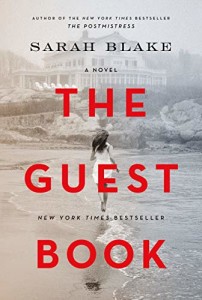 This is a story about a family, but also about a country, told over several generations. The Miltons are blueboods, the bedrock of America. They are the definition of privilege and noblesse oblige. Civility and honor are prized, along with knowing one’s place – the assumption being that a everyone should know their place and act accordingly. The family patriarch buys an island in Maine in the years preceding World War II, which is the backdrop to much drama and a deeply buried mystery which later gets unearthed by a granddaughter trying to make sense of the past. Blake does a magnificent job depicting the different generations, their relationships to each other, and their experiences of both the island and the family legacy. The island itself comes beautifully to life through the seasons and over the years, with incredibly gorgeous detail of the sea and local plant life and the items in the kitchen and in the bedrooms, the clothes that the characters wear and what each generation is drinking, so that the place itself a main character in this compelling tale. She expertly weaves together the threads of this story that are both highly personal to the Milton family, and also contain reverberations of American history and changing national mores. The personal is truly political here, even as individual family members try over the generations to cover up their complicity. But truth seeps out of the cracks of even carefully constructed lies and omissions, and is eventually uncovered.
This is a story about a family, but also about a country, told over several generations. The Miltons are blueboods, the bedrock of America. They are the definition of privilege and noblesse oblige. Civility and honor are prized, along with knowing one’s place – the assumption being that a everyone should know their place and act accordingly. The family patriarch buys an island in Maine in the years preceding World War II, which is the backdrop to much drama and a deeply buried mystery which later gets unearthed by a granddaughter trying to make sense of the past. Blake does a magnificent job depicting the different generations, their relationships to each other, and their experiences of both the island and the family legacy. The island itself comes beautifully to life through the seasons and over the years, with incredibly gorgeous detail of the sea and local plant life and the items in the kitchen and in the bedrooms, the clothes that the characters wear and what each generation is drinking, so that the place itself a main character in this compelling tale. She expertly weaves together the threads of this story that are both highly personal to the Milton family, and also contain reverberations of American history and changing national mores. The personal is truly political here, even as individual family members try over the generations to cover up their complicity. But truth seeps out of the cracks of even carefully constructed lies and omissions, and is eventually uncovered.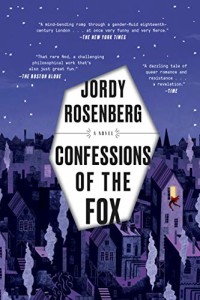 A conceptual novel if ever there was one, for most of the time I was reading this I couldn’t decide if it was brilliant or insane, or both. Based on the life of historical characters from 18th century London, Jack Sheppard, a reknown thief and jailbreak, and Edgeworth Bess, a famous prostitute, this novel is a combination of different styles, narratives, and narrators. It is about as queer a novel as is possible, dealing with queer identity and also breaking down boundaries about writing and novels and fiction, and so much more. Ostensibly, this volume is a research project being undertaken by a professor, Dr. Voth, whose career is shaky at best and whose heart has recently been broken. The reader comes to understand that the professor is trans, and that there is much going on in the Dr. Voth’s life beyond this project. The book is divided into two parts. One is a longlost autobiographical manuscript containing the story of Jack Sheppaard and Edgeworth Bess. The manuscript, which may or not be a hoax, reveals heretofore unknown information including that Sheppard had been born a girl, and other ways in which both were masters of gender-transformation and barrier-breakers. The other part of the book are Dr. Voth’s footnotes on the manuscript, which both comment on the manuscript, and within those margins also begin to shape a narrative about the professor’s own life and reality. If this sounds like a dizzying journey, it is. But it is well worth it. This boundary-pushing book is a delicious delight, at times quite funny and at other times heartbreaking. And, yes, it is absolutely brilliant.
A conceptual novel if ever there was one, for most of the time I was reading this I couldn’t decide if it was brilliant or insane, or both. Based on the life of historical characters from 18th century London, Jack Sheppard, a reknown thief and jailbreak, and Edgeworth Bess, a famous prostitute, this novel is a combination of different styles, narratives, and narrators. It is about as queer a novel as is possible, dealing with queer identity and also breaking down boundaries about writing and novels and fiction, and so much more. Ostensibly, this volume is a research project being undertaken by a professor, Dr. Voth, whose career is shaky at best and whose heart has recently been broken. The reader comes to understand that the professor is trans, and that there is much going on in the Dr. Voth’s life beyond this project. The book is divided into two parts. One is a longlost autobiographical manuscript containing the story of Jack Sheppaard and Edgeworth Bess. The manuscript, which may or not be a hoax, reveals heretofore unknown information including that Sheppard had been born a girl, and other ways in which both were masters of gender-transformation and barrier-breakers. The other part of the book are Dr. Voth’s footnotes on the manuscript, which both comment on the manuscript, and within those margins also begin to shape a narrative about the professor’s own life and reality. If this sounds like a dizzying journey, it is. But it is well worth it. This boundary-pushing book is a delicious delight, at times quite funny and at other times heartbreaking. And, yes, it is absolutely brilliant.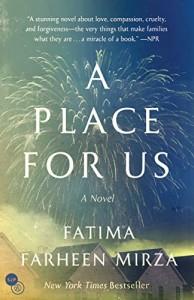 My first thought upon recalling the experience of reading this book is simply to take a deep breath. There is a reverence to this book, a deep respect for the tradition out of which this story comes. In many ways, this book belongs to a genre of stories of immigrants to the United States, with generational differences causing friction between parents and children and struggles over identity and belonging. Within that genre there is a sub-genre to which it belongs as well, the stories of immigrant families from India, with all the particulars of those stories. And while this particular book does belong to that genre and sub-genre, it is so much more. As the family gathers for a wedding, their love for each other comes to the surface along with secrets, anger, and hurts. As the narrative moves from the present to the past, and then into the future, betrayal after betrayal is revealed, and the scars become visible. Yet with all the drama, there is an understated stillness and quietude that threads through the complexity of this family story. Their Muslim faith is in the forefront of their behavior; their beliefs and theology is described in loving ways that allow for struggle and engagement rather than serving as a mere descriptive element. They want to be people of faith, and they are sustained by their faith, even as they worry about not living up to its highest aspirations. I found their struggle to be deeply moving, and the level of complexity with which they struggled to be quite compelling.
My first thought upon recalling the experience of reading this book is simply to take a deep breath. There is a reverence to this book, a deep respect for the tradition out of which this story comes. In many ways, this book belongs to a genre of stories of immigrants to the United States, with generational differences causing friction between parents and children and struggles over identity and belonging. Within that genre there is a sub-genre to which it belongs as well, the stories of immigrant families from India, with all the particulars of those stories. And while this particular book does belong to that genre and sub-genre, it is so much more. As the family gathers for a wedding, their love for each other comes to the surface along with secrets, anger, and hurts. As the narrative moves from the present to the past, and then into the future, betrayal after betrayal is revealed, and the scars become visible. Yet with all the drama, there is an understated stillness and quietude that threads through the complexity of this family story. Their Muslim faith is in the forefront of their behavior; their beliefs and theology is described in loving ways that allow for struggle and engagement rather than serving as a mere descriptive element. They want to be people of faith, and they are sustained by their faith, even as they worry about not living up to its highest aspirations. I found their struggle to be deeply moving, and the level of complexity with which they struggled to be quite compelling.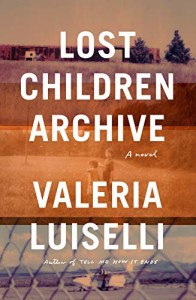 Read this book. Now. Run, don’t walk. This Man Booker Longlisted novel is both urgently of the moment, and achingly timeless. A patched together family of unnamed members, a mother, a father, a daughter and a son, get in a car to drive across America. It is in some ways an epic American road novel of discovery, myth-making, and in this case also myth-breaking. The parents are both involved professionally in recording sounds for the purposes of creating stories and documentaries, though their particular interests are in different areas. The mother, spurred by her distress about lost children in the midst of the current refugee and immigration crisis, is determined to tell a story about what is happening with children currently trying to enter this country. The father wants to tell the story of the Apache, to examine the reality versus the myth of what happened to the people who were the original inhabitants of this land and for whom we are the ones who came, uninvited and unwelcome. This is a story about the history and future of a particular family, and it is a story about a the history and future of this country. It is heartbreaking, and gorgeously written, with a kind of poetic repetitive beat that drives the narrative even at its most quotidian. But wait – there’s more. The story is told from several points of view, and includes lists, and so many names of books and writers, and a story within the story, and descriptions of photographs, and sounds, so many sounds and echoes of sounds that it feels like a multi-sensory experience as well as one of those never-to-be-forgotten interdisciplinary college classes that dizzyingly ties everything together in ways formerly unimaginable. A wise friend recommended that I listen to the book rather than read it, something I almost never do with fiction, but I listened to her advice and now I understand why. So that’s my recommendation as well – this is a book to listen to. Try it and you’ll see why.
Read this book. Now. Run, don’t walk. This Man Booker Longlisted novel is both urgently of the moment, and achingly timeless. A patched together family of unnamed members, a mother, a father, a daughter and a son, get in a car to drive across America. It is in some ways an epic American road novel of discovery, myth-making, and in this case also myth-breaking. The parents are both involved professionally in recording sounds for the purposes of creating stories and documentaries, though their particular interests are in different areas. The mother, spurred by her distress about lost children in the midst of the current refugee and immigration crisis, is determined to tell a story about what is happening with children currently trying to enter this country. The father wants to tell the story of the Apache, to examine the reality versus the myth of what happened to the people who were the original inhabitants of this land and for whom we are the ones who came, uninvited and unwelcome. This is a story about the history and future of a particular family, and it is a story about a the history and future of this country. It is heartbreaking, and gorgeously written, with a kind of poetic repetitive beat that drives the narrative even at its most quotidian. But wait – there’s more. The story is told from several points of view, and includes lists, and so many names of books and writers, and a story within the story, and descriptions of photographs, and sounds, so many sounds and echoes of sounds that it feels like a multi-sensory experience as well as one of those never-to-be-forgotten interdisciplinary college classes that dizzyingly ties everything together in ways formerly unimaginable. A wise friend recommended that I listen to the book rather than read it, something I almost never do with fiction, but I listened to her advice and now I understand why. So that’s my recommendation as well – this is a book to listen to. Try it and you’ll see why.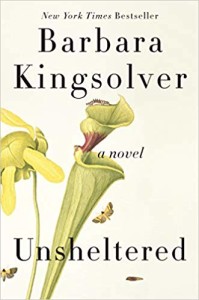 I love Barbara Kingsolver’s writing but this should have been a better book. I don’t regret reading it. But it seemed as if, because Kingsolver is such a successful author, that it didn’t get the editing it should have gotten. The concept is great. There are two parallel stories occurring in the same place, a century apart, in Vineland, New Jersey. Kingsolver has great material to work with here – Vineland has an interesting history. But the story felt too forced and too much in service about making a point about the state of the world in which we’ve found ourselves today, and the dire consequences that we will facing shortly if we don’t change our ways. In both stories. a literal house and a way of life are falling apart. Can either be saved is the question asked in both stories, and the answer is not a good one in either. But the stories are filled with interesting characters and possibilities for transformation, moments of aching tenderness and beautiful descriptions of nature. All of that made it possible to get through a book that desperately needed to be shorter and sharper.
I love Barbara Kingsolver’s writing but this should have been a better book. I don’t regret reading it. But it seemed as if, because Kingsolver is such a successful author, that it didn’t get the editing it should have gotten. The concept is great. There are two parallel stories occurring in the same place, a century apart, in Vineland, New Jersey. Kingsolver has great material to work with here – Vineland has an interesting history. But the story felt too forced and too much in service about making a point about the state of the world in which we’ve found ourselves today, and the dire consequences that we will facing shortly if we don’t change our ways. In both stories. a literal house and a way of life are falling apart. Can either be saved is the question asked in both stories, and the answer is not a good one in either. But the stories are filled with interesting characters and possibilities for transformation, moments of aching tenderness and beautiful descriptions of nature. All of that made it possible to get through a book that desperately needed to be shorter and sharper.
